#Werner Frank
Text

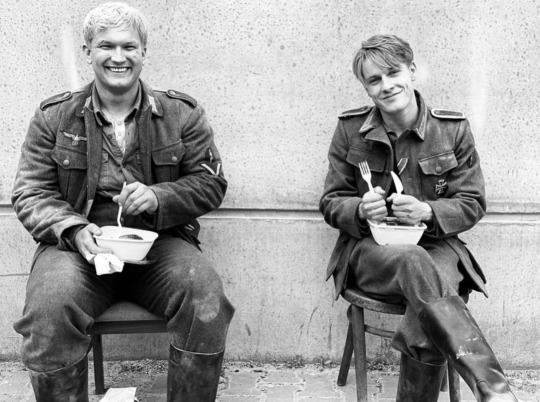
everytime someone posts a behind of scenes of this show i end up giggling ENOUGH IS ENOUGH
#not reaching or anything but werner and volkheimer surely have the time of their lives together#all the light we cannot see#werner pfennig#frank volkheimer#louis hofmann#corin silva
24 notes
·
View notes
Text

Werner Herzog's Dune
7 notes
·
View notes
Text
'Director Christopher Nolan assembled an all-star cast for his summer blockbuster “Oppenheimer,” a biopic about physicist J. Robert Oppenheimer and the creation of the Manhattan Project. The film, based in part off the definitive Oppenheimer biography “American Prometheus,” stars Cillian Murphy as the famed scientist...
J. Robert Oppenheimer
One of the 20th century’s great enigmas, J. Robert Oppenheimer (1904-1967) was born into a wealthy New York family. His pick as the head of the Manhattan Project was a risky one: He was a theoretical physicist, not a practical one, and he was well known for his eccentricities. But Oppenheimer transformed into a bureaucratic mastermind, deftly leading scientists and the military together at Los Alamos.
After the war, he was swept up in the nationwide panic over communism, and several key figures within the U.S. government accused him of being a Soviet spy. Some of his former colleagues turned on him in a 1954 hearing that would end in the revocation of his security clearance. After a lifelong habit of smoking up to five packs a day, Oppenheimer died of throat cancer in 1967. He is played by Cillian Murphy (“Peaky Blinders,” “Inception”) in “Oppenheimer.”
Kitty Oppenheimer
Kitty Puening (1910-1972) was born in Germany and immigrated to the United States when she was a toddler. Described by friends and acquaintances as smart, mercurial and vivacious, Oppenheimer was her fourth husband. Her first marriage lasted just a year, and she soon became the common-law partner of Joseph Dallet Jr. a member of the Community Party. Bolstered by his convictions, Dallet left for Spain to fight in the Spanish Civil War. He died in combat in October 1937.
When Kitty met Oppenheimer at a party in Pasadena two years later, she was married to her third husband, Stewart Harrison. Kitty became pregnant with Oppenheimer’s child in 1940, and they asked Harrison to grant Kitty a divorce. The Oppenheimers had a son and daughter together. Kitty’s ties to the Communist Party were part of the evidence put forward by Oppenheimer’s detractors.
Kitty Oppenheimer is played by Emily Blunt (“A Quiet Place,” “Jungle Cruise”).
Jean Tatlock
Described by some as the love of Oppenheimer’s life, Jean Tatlock (1914-1944) was a pioneering doctor in the Bay Area. She attended Stanford Medical School and became a clinical psychiatrist in her 20s. Her brilliance attracted Oppenheimer, who met her at a house party in Berkeley. The pair were on and off for years until Tatlock called their engagement off in 1939.
Tatlock was found dead in her San Francisco apartment in 1944. She was just 29...Tatlock is played by Florence Pugh (“Little Women,” “Midsommar”).
Ernest Lawrence
Long before Oppenheimer became a household name, Ernest Lawrence (1901-1958) was one of America’s most famous scientists. He joined the physics faculty at UC Berkeley in 1928 and, the next year, was joined there by Oppenheimer. Both in their 20s, they became close friends — Lawrence later named his son Robert in Oppie’s honor. While at Cal, Lawrence invented the cyclotron, which earned him a 1939 Nobel Prize.
However, their friendship soured, as the men butted heads about the future of nuclear weapons. After the war, Lawrence pushed for more government funding into nuclear research, and founded the Lawrence Livermore National Laboratory. The death knell for their friendship was when Lawrence reportedly discovered Oppenheimer was having an affair with Ruth Tolman, the wife of their friend and Caltech scientist Richard Tolman.
The Lawrence Berkeley National Laboratory and the chemical element lawrencium are both named for Lawrence. He is played in the movie by Josh Hartnett (“Penny Dreadful,” “Pearl Harbor”).
Lt. Gen. Leslie Groves
The military head of the Manhattan Project, Lt. Gen. Leslie Groves (1896-1970) was tasked with finding a scientist to lead the team in Los Alamos. Groves, who was the son of an Army chaplain, was the consummate military bureaucrat. His skill at building teams landed him in charge of both the construction of the Pentagon and the Manhattan Project during World War II.
On the day the bomb was dropped on Hiroshima, Groves called Oppenheimer from Washington to congratulate him. “I think one of the wisest things I ever did was when I selected the director of Los Alamos,” Groves said. When Oppenheimer said he wasn’t as sure, Groves replied, “Well, you know I’ve never concurred with those doubts.”
Groves is played by Matt Damon (“The Martian,” “The Last Duel”).
Lewis Strauss
One of the villains of the Oppenheimer story is Lewis Strauss (1896-1974), the chair of the U.S. Atomic Energy Commission. Oppenheimer and Strauss conflicted in just about every way. While Strauss wanted the U.S. to maintain secrecy about their nuclear arsenal and develop ever more powerful hydrogen bombs, Oppenheimer objected to both. Oppenheimer, who was highly regarded and never afraid to embarrass someone he considered foolish, irritated Strauss constantly.
Strauss got his revenge working with FBI director and professional paranoiac J. Edgar Hoover to look for Soviet sympathies in Oppenheimer’s life, which set into motion the security hearing that would revoke Oppenheimer’s top-secret clearance. Strauss is played by Robert Downey Jr. (“Iron Man,” “Dolittle”).
Richard Feynman
Few men involved with the Manhattan Project had lives as colorful as Richard Feynman (1918-1988). Feynman was not yet 25 when he was recruited to work in Los Alamos — he didn’t even have a graduate degree. But the Queens man with a thick New York accent and a devilish grin was an undeniable genius. He also loved pranks. He was known for sneaking into the facility — something that could have easily gotten him shot — and used to crack safe combinations where his colleagues stored top-secret material.
In 1965, he won the Nobel Prize in Physics, and he became a household name thanks to his bestselling memoir “Surely You’re Joking, Mr. Feynman!” He is played by Jack Quaid (“The Boys,” “Logan Lucky”).
Robert Serber
Robert Serber (1909-1997) was a postdoctoral fellow at the University of Michigan in 1934 when he attended a guest lecture by Oppenheimer. The professor’s brilliance was so unforgettable, Serber packed his bags and transferred immediately to UC Berkeley to study under him. The two became fast, lifelong friends. When Serber was ready for an associate professorship, Oppenheimer advocated for him. Department chair Raymond Birge, however, wrote that “one Jew in the department is enough.” (Oppenheimer was Jewish, as was Serber.)
Serber accompanied Oppenheimer to Los Alamos and was later one of the first Americans to inspect the bomb sites at Hiroshima and Nagasaki. He is played by Michael Angarano (“I’m Dying Up Here,” “The Knick”).
Werner Heisenberg
Oppenheimer’s counterpart in Nazi Germany was Werner Heisenberg (1901-1976). As the Manhattan Project was getting off the ground, American scientists feared they were far behind the Nazis’ nuclear program. Luckily for them, Heisenberg was nowhere near the creation of an atomic bomb. Despite being a Nobel Prize winner, Heisenberg never got close to unlocking nuclear fission; when he learned of Hiroshima while in an English prison camp, he expressed astonishment that the Americans could create such a weapon at all.
Heisenberg is played by Matthias Schweighofer (“Hinterland,” “Army of the Dead”).
Frank Oppenheimer
Frank Oppenheimer, the younger brother of Robert, also had his life torn apart by Cold War paranoia. A brilliant scientist in his own right, Frank Oppenheimer (1912-1985) joined the American Communist Party in the 1930s. Although he left it several years later, after the war he was ordered in front of the House Un-American Activities Committee. As a result of the Red Scare fervor, he was forced to resign his teaching job at the University of Minnesota. He moved to a cattle ranch in Colorado. There, he was able to get a job teaching again — at a high school.
In the 1960s, Oppenheimer decided he wanted to open a kid-friendly science museum. He found its home in San Francisco, and there he opened the Exploratorium in 1969. He was a constant presence at the museum until his death in Sausalito in 1985. He is played by Dylan Arnold (“You,” “Halloween”).'
#J. Robert Oppenheimer#Cillian Murphy#Kitty Oppenheimer#Emily Blunt#Christopher Nolan#Frank Oppenheimer#Dylan Arnold#Halloween#You#Matthias Schweighofer#Hinterland#Army of the Dead#Werner Heisenberg#Michael Angarano#I'm Dying Up Here#Robert Serber#Logan Lucky#Richard Feynman#Jack Quaid#Lewis Strauss#Robert Downey Jr.#Iron Man#The Boys#Dolittle#Leslie Groves#Matt Damon#The Martian#The Last Duel#Ernest Lawrence#Josh Hartnett
7 notes
·
View notes
Text

Checkmate! ♟️
For detailed info, check the tags.
Cheers!🦁💙🙏
#credited to je#football art#fan art#timo werner#kai havertz#didier drogba#petr cech#declan rice#mason mount#john terry#frank lampard#mateo kovačić#cesar azpilicueta#eden hazard#ngolo kante
2 notes
·
View notes
Text
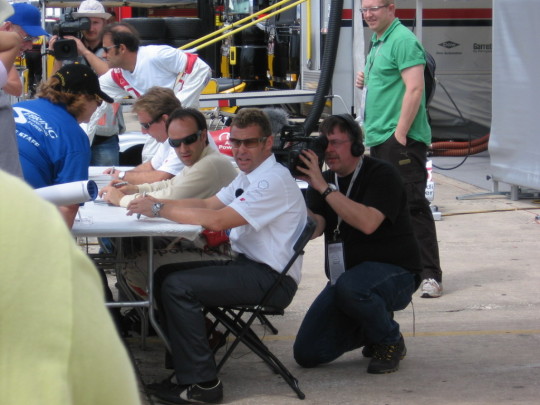
#Audi Driving Legends#my photo#12 hours of sebring#autograph session#tom kristensen#marco werner#emanuele pirro#florida#frank biela
2 notes
·
View notes
Text










From Punisher War Journal: Blitz #001
Art by Lan Medina and Antonio Fabela
Written by Torunn Grønbekk
5 notes
·
View notes
Text
3 marzo … ricordiamo …
3 marzo … ricordiamo …
#semprevivineiricordi #nomidaricordare #personaggiimportanti #perfettamentechic
2023: Tom Sizemore, Thomas Edward Sizemore, attore, produttore cinematografico e cantante statunitense. Durante le riprese del film Assassini nati – Natural Born Killers nel 1994 l’attore si è rotto inavvertitamente il naso in una scena d’azione. Nel 1996 l’attore si è sposato con l’attrice Maeve Quinlan, ma nel 1999 è arrivato il divorzio; l’attore poi è stato fidanzato con la maitresse…

View On WordPress
#3 marzo#Alfieri Maserati#Alice Pearce#Connie Gilchrist#Danny Kaye#Dante Maggio#David Daniel Kaminsky#David Ogden Stiers#Doris Hill#Emily Fitzroy#Eugenia Castagnola#Frank R. Wilcox#Frank Reppy Wilcox#Frank Wilcox#Horst Buchholz#Horst Werner Buchholz#Liliana Castagnola#Lois Wilson#Lou Costello#Louis Francis Cristillo#Maria Antonieta Portocarrero Thedim#Míriam Colón#Míriam Colón Valle#Nicola Mary Pagett Scott#Nicola Pagett#Percy Marmont#Ricordiamo#Robert Beatty#Rose Constance Gilchrist#Sarah Ferrati
0 notes
Text
WH Cuphead AU
The list! Everyone who has participated in this AU that belongs to @/eve-pie! 💞
And I’ll update the list too!
All I did was go through the #wh Cuphead au tag <33
Cuphead : Wally
Mugman : Barnaby
Ms Chalice : Julie
Elder Kettle : Poppy
Porkerind : Howdy
Apple : Patches @/eve-pie
Ms Beagle
Masusoleums : Franny, Bea, Jonesy
Tea Kettle : Home
Flapper : Callia @/bueno-diaz
Silky : @/silky-silks
ISLE ONE
Root Pack : Benny, Kizzy, Tazee, Molly @/justmwahstruly
Goopy Le Grande :
Hilda Berg : Danny @/autisticartbug
Cagney Carnation : Dandy @/sketchy-tour
Ribby and Croaks : Xin & Gin @/choaticmessakafrankfan
ISLE TWO
Baroness Von Bon Bon : Sydney @/autisticartbug
Beppi the clown : Alex @/froggyalexmagic
Dijmmi the great : Dolly @/autisticartbug
Grim Matchstick :
Wally Warbles :
ISLE THREE
Rumor Honeybottoms : Neso @/choaticmessakafrankfan
Captain Brineybeard :
Sally Stageplay : Sally
Werner Werman :
Dr. Kahl’s Robot :
Cala Maria : Mailey @/autisticartbug + Lilith @/your-local-bunni
Phantom Express :
CASINO
Tipsy Troop :
Chips Bettigan :
Mr. Wheezy :
Pip and Dot : Molly and Mason @/autisticartbug
Hopus Pocus : Latter
Phear Lap :
Pirouletta : Carrie @/autisticartbug
Mangosteen :
Mr. Chimes :
HELL
Henchman : Lane @/ratzypoison / Allie @/dollpuppets
King Dice : Frank
The Devil : Eddie
DLC
Glumstone Giant :
Mortimer Freeze :
Moonshine Mob :
Esther Winchester :
The Howling Aces :
Chef Saltbaker :
Angel & Devil : Nina & Eric @/ericvesleb666
DLC : THE KING’S LEAP
The King :
The Pawns :
The Knight :
The Bishop :
The Rook :
The Queen : Malikia @/blueberrynai23
#welcome home#welcome home oc#welcome home OCs#welcome home au#welcome home cuphead au#wh cuphead au#cuphead au#cuphead bosses#list#welcome home au and OCs#multiple people :0 whoa!#that’s a lot of bosses and people!#I’ll update as people continue to contribute!
32 notes
·
View notes
Text
Amin al-Husseini docu: part 8
Part 1 | Part 2 | Part 3 | Part 4 | Part 5 | Part 6 | Part 7 | Part 8 | Last
Translator's notes:
-> Erwin Rommel was the commander of the Nazi forces in North Africa. They landed in Tunisia and were moving eastward, towards the Land of Israel. Rommel was stoppsed at the Second El-Alamein battle, in November 1942.
-> Walter Rauff was appointed as, among other things, the head of a unit called Einsatzgruppe Egypt (similarly named to the Einsatzgruppen in Europe, the "death squads" in charge of exterminating the Eastern European Jews, and which according to the latest research shot to death at least 2.5 million Jewish men, women and children in the shooting pits there). Einsatzgruppe Egypt was stationed in Athens, awaiting deployment in the Land of Israel once it would be occupied by Rommel's forces. The unit of 24 men was supposed to instruct the local Arabs, recruited by the Mufti, in how to exterminate Jews in gas chambers that were to be built in the Dotan Valley.
-> Prof. Yossi ben-Artzi is actually presented by the docu as "researched Operation Atlas," but I can't in good conscience write that, when he was actually researching The Templers. They are a German radical sect, which was established in 1861, and aspired to form the "perfect Christian society" to speed up the return of Jesus, which could also be helped by colonizing Israel. They began to do so around the end of the 1860's. This sect views Jews as denied salvation, since they didn't accept Jesus. At the peak of the Templers' colonization in Israel, they had somewhere between 900 to 1,200 adults, with a total community size of around 2,000 members living here. In the 1930's, they greatly identified with the Nazis, and at least 300 adult Templers were also officially members of the Nazi party. They even had local chapters of the Nazi party and the Hitler Jugend (Hitler youth) at their colonies in Israel. By 1934, there were reports of the Templers spreading Nazi ideology to local Arabs in Israel. Templer men were drafted into the Nazi army (the Wehrmacht) on Aug 20, 1939. Some of them left for Germany with their families, altogether 550 people. The British expelled most of those remaining to Australia. The few left were expelled in 1948, following Israel's Independence War. Israel paid the sect reparations for the property they had to leave behind (most of which was confiscated by the British). Today, there are still about 1,300 Templers living in Australia (with a center in Melbourne) and 700 in Germany. Their main center there is in Stuttgart, where they have their own conference hall, archive and monthly newspaper.
(in the pic: The Fast Hotel in Jerusalem, displaying several country flags along with the Nazi one in 1933)

-> Operation Atlas included 5 parachutists. The three German ones were Kurt Wieland, who headed a local Hitler Jugend chapter and left in 1936 for Germany to join the Nazi army, Friedrich Deininger, who helped the Arabs during the 1936-1939 Arab revolt (in which many Jews and Brits were targeted in Israel) and was incarcerated for this by the British, but he managed to escape to Germany, and Werner Frank, who had joined the Hitler Jugend in 1934 already. The two Arabs were Abdul Latif, who had participated in the Arab revolt, was expelled for it by the Brits to Iraq, but ended up becoming one of the Mufti's assistants in Berlin, and Hasan Salama, one of the leaders of the Arab revolt (during which he also killed many Arabs and gained from stolen property), after which he fled to Lebanon, then Syria, where he joined the Mufti on his way to Iraq, and finally to Germany. Salama became one of the Arab leaders during Israel's Independence War, and in fact he led the attack on bus 2904 from Netanya to Jerusalem, which is the anti-Jewish attack that started the war on Nov 30, 1947.

-> The participants of Operation Atlas parachuted east of Jericho on Oct 6, 1944. Some of their gold coins got the local Arabs talking, leading the British police to them. By Oct 11, even the Jewish press in Israel published the info on the strangers who had parachuted there. On Oct 15, the Brits captured Wieland, Frank and Latif. On Oct 16, they formally published this info. A few days later, they called off the search for the remaining two men. Deininger was captured in 1946, when he tried to contact his family, and Salama, who oversaw the start of Israel's Independence War, was eventually killed in a battle not too far from Rosh Ha'Ayin, the area where the springs the operation is said to have targeted are, and the same zone that Salama himself was from.
-> Decades after the war, Professor ben-Artzi, out of admiration for some of the Templers' colonialist accomplishments in Israel, lived with them in Stuttgart to gain their trust and study them. He was told by one man, who had returned from Australia, that the (then undisputed) story of Operation Atlas' goal being to poison Tel Aviv's water is untrue. According to ben-Artzi, 7 years later the man confessed to be the Nazi Waffen SS soldier Werner Frank, and it's his testimony that the professor is mostly basing his assessment of Operation Atlas on.
-> I'll offer my POV on Operation Atlas, but it's obviously just my personal opinion. I do think Frank had motivation to deny his complicity in what would have been a mass murder, for his own sake and that of his sect. I also don't know why his testimony should be seen as any more reliable than that of so many other Nazi criminals, who after the end of WWII, denied some of the facts or their own motivation. I do believe the substance the parachutists were carrying was poison. Other than Professor ben-Artzi, no historian disputes this, they mainly argue what the poison was for. Beyond the fact that black pepper is a much easier way to throw dogs off, poison specifically is a really dumb idea for that task, because it's bound to leave a trail of dead dogs that would lead back to the parachutists. And of course, the Mufti was a raging genocidal antisemite, obsessed with making sure that even Jews outside of Israel would be exterminated, so why in the world would he be so involved, and even emotionally invested (calling the parachutists his sons) if the operation was not targeting Jews specifically?
(for all of my updates and ask replies regarding Israel, click here)
#israel#antisemitism#israeli#israel news#israel under attack#israel under fire#terrorism#anti terrorism#hamas#antisemitic#antisemites#jews#jew#judaism#jumblr#frumblr#jewish#israelunderattack#al-husseini#ישראבלר
34 notes
·
View notes
Text
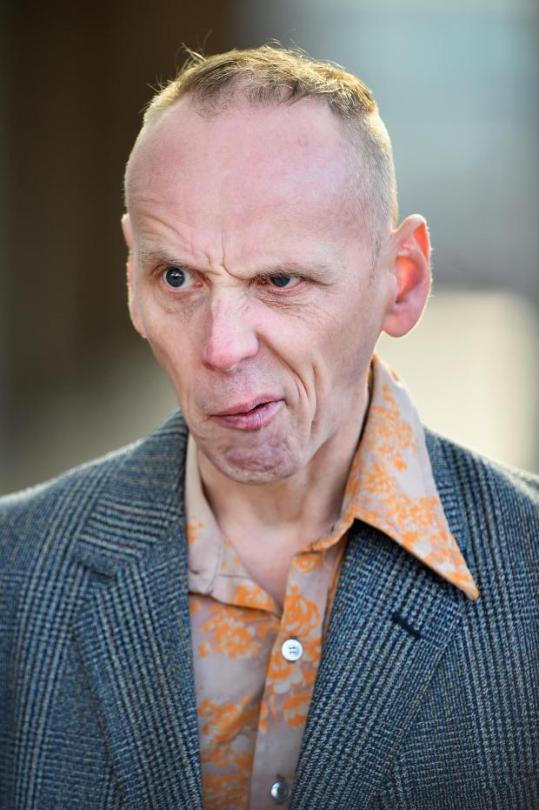
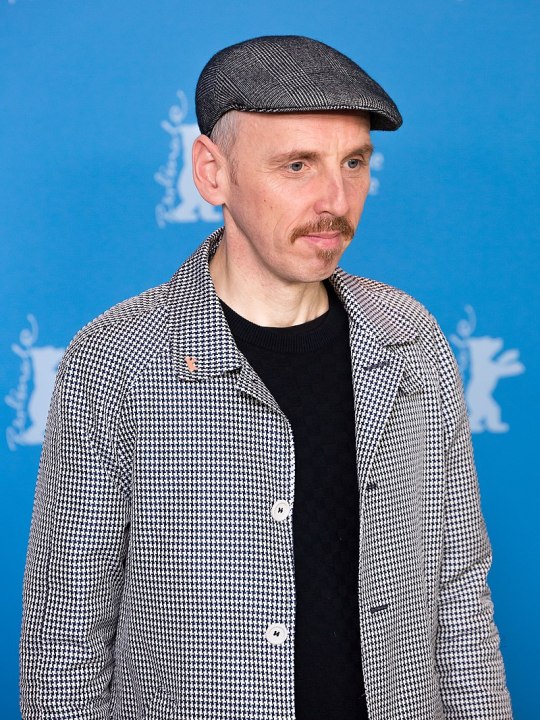
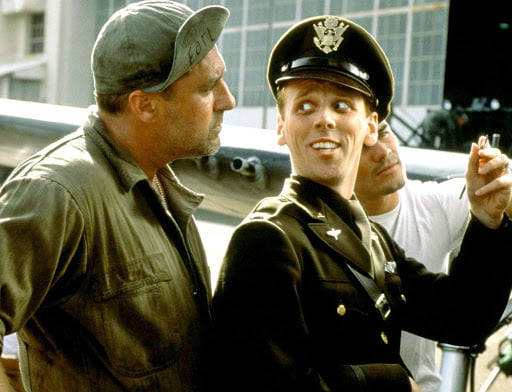
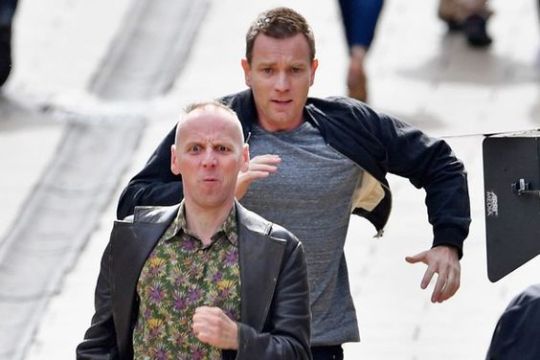

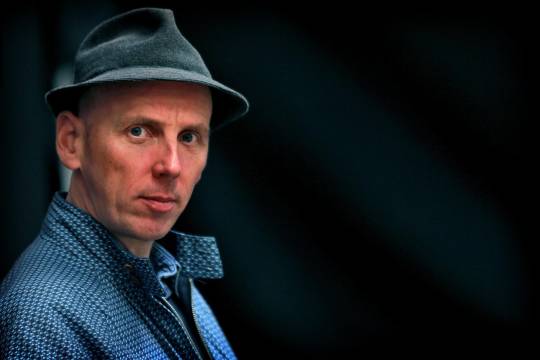
Happy Birthday Scottish actor Ewen Bremner, born January 23rd 1972 in Edinburgh.
Bremner has worked with many of the most respected directors in world cinema, including Danny Boyle, Mike Leigh, Ridley Scott, Joon-Ho Bong, Werner Herzog and Woody Allen. Hen has established himself by creating unique characters in critically acclaimed films, as well as going toe to toe with many of Hollywood's biggest stars.
Ewen had worked widely in theatre, television, and film for years before being cast in his breakout role in Trainspotting, by Oscar-winning director Danny Boyle. He was the first to be cast in the role of Mark Renton in Edinburgh's Traverse Theatre production but lost out to Ewan McGregor in the film version, instead he was handed the role of Spud Murphy and earned screen immortality with his character's infamous "speed fuelled" job interview scene.
Prior to Trainspotting, Bremner gave a striking performance in Mike Leigh's Naked, fellow Scot Susan Vidler played his girlfriend Maggie in this excellent film.
In 1999, Bremner received critical acclaim for his portrayal of a schizophrenic man living with his dysfunctional family in Harmony Korine's Julien, Donkey-Boy. Filmed strictly in accordance with the ultra-realist tenants of Lars Von Trier's Dogma 95 movement and starring opposite Werner Herzog, Bremner played Julien its eponymous hero, requiring him to assume an American accent. He then worked with director Michael Bay in his high-profile 2001 war film Pearl Harbor, proving his versatility once again by portraying the role of a wholeheartedly patriotic American soldier fighting in WWII. The following year, he stepped back into fatigues for a supporting role in Ridley Scott's Black Hawk Down, while rounding out the next several years with roles in high-profile Hollywood releases such as The Rundown, Disney's Around the World in 80 Days), AVP: Alien vs. Predator, Woody Allen's Match Point, the comedy Death at a Funeral directed by Frank Oz, and Fool's Gold starring Matthew McConaughey and Kate Hudson.
This past few of years proved to be a busy when Bremner was invited to join the DC Universe in the Zack Snyder-produced feature Wonder Woman, directed by Patty Jenkins, co-starring Gal Gadot and Chris Pine. Ewen also reprised his unforgettable role as Spud in the highly-anticipated sequel to Danny Boyle's cult classic, T2: Trainspotting
Bremner appeared in the TNT Drama Series Will with Shekhar Kapur. The series told the story of the lost years of young William Shakespeare after his arrival to London in 1589 but only lasted one season. Other notable film credits include Woody Allen's You Will Meet a Tall Dark Stranger, Perfect Sense starring again alongside Ewan McGregor, Great Expectations, Jack the Giant Slayer, and Snowpiercer starring alongside Chris Evans and Tilda Swinton. Further credits include Exodus: Gods and Kings, Wide Open Spaces, Mojo, Mediator, Faintheart, Hallam Foe, Sixteen Years of Alcohol, and Snatch.
In television, Ewen has worked on many acclaimed productions including David Hare's Worriker trilogy starring Bill Nighy for BBC, Jimmy McGovern's Moving On and also his Australian mini-series Banished, Strike Back for Sky TV, Dominic Savage's Dive, the Dylan Thomas biopic, A Poet In New York and the adaptation of Day of the Triffids for the BBC. Other noteworthy series appearances include portraying legendary surrealist Salvador Dali in the U.K. television drama Surrealissimo: The Trial of Salvador Dali, and a guest spot on the successful NBC series, My Name is Earl, not to forget an early appearance in Taggart way back in 1990.
Latley Ewen has been one of a number of Scottish actors who are backing a campaign to reopen the Film House cinema in Edinburgh, he has a couple of projects on the go just now, Bluefish, which takes us around the globe to tell stories of people trying to break out of their bubbles of isolation, which I take to mean the Covid pandemic, he also has a film on the go called Roo, but there is nothing to report on that just now.
22 notes
·
View notes
Text


The present book is an antiquarian treasure: „Beck-Erlang“, edited by Gisela Schultz and Frank Werner and published by Hatje Cantz in 1983. It is the first and for a long time only work catalogue of Wilfried Beck-Erlang (1924-2002), one of Germany‘s most interesting postwar architects. Beck-Erlang was an individualist whose work isn’t characterized by a signature style but a continuous search for the right solution for each building task. Projects like the Zürich-Vita-Haus or his own house and studio, both located in Stuttgart, are built manifestos of his sophisticated approach to architecture. Although the book only includes a short introduction by Frank Werner it provides, based on extensive plan and photographic material, an exciting overview of the work of an immensely creative architect. For deeper insights into Beck-Erlang’s life and work I strongly recommend Carsten Wiertlewski’s dissertation „Beck-Erlang - Das Werk des Architekten Wilfried Max Beck“ from 2012 which can be downloaded for free via e.g. the German National Library’s catalogue.
#wilfried beck-erlang#architecture book#monograph#architecture#germany#nachkriegsarchitektur#nachkriegsmoderne#book#vintage book
21 notes
·
View notes
Text
the four most important youtube videos to me:
the dean martin and frank sinatra blind date sketch
paul simon dressed as a turkey singing still crazy after all these years on snl
werner herzog discovers that john waters is gay
roddy mcdowall in the carol burnett show
17 notes
·
View notes
Text
'The one thing you need to know about Christopher Nolan’s “Oppenheimer” is that it moves incredibly fast and covers a lot of ground. For most of its three-hour runtime, the atomic bomb epic can feel as if you’re reading a dense biography about J. Robert Oppenheimer at three times the normal speed. With so many scientist characters orbiting Oppenheimer at light speed, you’d be forgiven for feeling a little lost at times.
To help watch “Oppenheimer” with a bit more clarity, it’s important to know the movie takes place during three time periods. One timeline is set in 1954 as the U.S. Atomic Energy Commission (AEC) holds a security hearing to investigate whether or not Oppenheimer (Cillian Murphy) is a Soviet spy. The hearing prompts the film to flash back to the events of Oppenheimer’s life, from his university days to his role in creating the atomic bomb. These portions of the film, shot in color, make up the bulk of “Oppenheimer’s” three-hour runtime.
A third storyline is shot in black and white and takes place in 1959 as Lewis Strauss (Robert Downey Jr.), the former chairman of the U.S. Atomic Energy Commission, is seeking to become U.S. Secretary of Commerce under President Dwight D. Eisenhower. Strauss finds himself at the center of his own U.S. Senate confirmation hearing, which threatens to expose his involvement in the events of the 1954 timeline.
“Oppenheimer” creates its own kind of fission by constantly jumping between these time periods, as characters and events twist depending on the perspective. Whether you want to go into “Oppenheimer” with a bit more knowledge or you’ve just seen it and are wondering who everybody was (it can be hard to keep track given the film’s relentless pace), below is your guide to the film’s cast and the real historical figures they play.
Cillian Murphy as J. Robert Oppenheimer
Cillian Murphy stars as theoretical physicist J Robert Oppenheimer, known as the “father of the atomic bomb.” Oppenheimer was named the director of the Manhattan Project’s Los Alamos Laboratory in New Mexico. It’s here where Oppenheimer and his team developed the first atomic bomb for World War II. The bomb was detonated on July 16, 1945 in what is referred to as the Trinity test, with Oppenheimer present during the demonstration.
For Murphy, “Oppenheimer” marks his first time leading a Nolan movie in over 20 years. The two worked together on five previous features: Three Batman films, “Inception” and “Dunkirk.” Murphy revealed last year that in prepping to play Oppenheimer he skipped over all the mechanics of what makes an atom bomb and instead focused on the man himself.
“[I prepped by doing] an awful lot of reading,” Murphy recently told The Guardian. “I’m interested in the man and what [inventing the atomic bomb] does to the individual. The mechanics of it, that’s not really for me — I don’t have the intellectual capability to understand them, but these contradictory characters are fascinating.”
Emily Blunt as Katherine "Kitty" Oppenheimer
Emily Blunt stars as Katherine “Kitty” Oppenheimer, who married J Robert Oppenheimer in 1940. Born in Germany, Kitty was a botanist and biologist whose early life was associated with the Communist party after she became the common-law wife of party member Joseph Dallet Jr. She met Oppenheimer in 1939 at the California Institute of Technology, where he was a part time physics teacher and she was assisting physicist Charles Lauritsen. They began an affair while she was still married to medical doctor Richard Stewart Harrison. Kitty left Harrison and married Oppenheimer in November 1940 after she became pregnant with their first child, Peter. The couple moved to Los Alamos in March 1943 so that Oppenheimer could work full time on his Manhattan Project duties. They had their second child there. The isolation of living in Los Alamos contributed to Kitty’s alcoholism.
Matt Damon as Leslie Groves
Matt Damon plays Leslie Groves, who was the director of the Manhattan Project. The group’s mission was to develop the first atomic bomb during World War II. Groves had previously overseen the construction of the Pentagon while serving as an officer in the United States Army Corps of Engineers. As director of the Manhattan Project, Groves approved Los Alamos, New Mexico as one of several testing sites for the development of the atomic bomb. He personally recruited Oppenheimer to lead the charge at Los Alamos, a divisive choice at the time as Oppenheimer lacked a Nobel Prize and administrative leadership experience. Groves was on site for the detonation of the first atomic bomb on July 16, 1945.
Robert Downey Jr. as Lewis Strauss
Robert Downey Jr. plays Lewis Strauss, who served two terms on the U.S. Atomic Energy Commission (AEC). Strauss was the organization’s chairman during his second term. He became an enemy of Oppenheimer’s due to the AEC’s controversial hearings in April 1954 that led to Oppenheimer’s security clearance being revoked. The hearings came as a result of Strauss becoming convinced that Oppenheimer was a Soviet spy. Strauss became convinced of the fact after Oppenheimer’s claim that the Soviets were four years behind the U.S. in nuclear weapons development got challenged. Strauss eventually asked FBI director J. Edgar Hoover to run surveillance on Oppenheimer, and the organization ran a wiretapping of Oppenheimer’s phones. Illegally-obtained conversations Oppenheimer had over the phone with lawyers and more were used by Strauss to stack the hearing’s odds against Oppenheimer.
Florence Pugh as Jean Tatlock
Florence Pugh stars as Jean Tatlock, who had a relationship with Oppenheimer before and during his marriage to Katherine “Kitty” Oppenheimer. The two met at the University of California, Berkeley, where Tatlock was a graduate student and Oppenheimer was a physics professor. Tatlock was a member of the American Communist Party. The film shows the two first meeting at a members gathering that Oppenheimer is brought to by his brother, Frank, who also had ties to the American Community Party. Tatlock’s relationship with Oppenheimer was cited during Lewis Strauss’ AEC hearing because of her Communist ties. Tatlock died by suicide at the age of 29 after struggling with clinical depression.
Josh Hartnett as Ernest Lawrence
Ernest Lawrence, played by Josh Hartnett, was a nuclear physicist from Canton, South Dakota who was awarded the Nobel Prize in Physics in 1939 for his invention of the cyclotron, a particle accelerator that was the first cyclical machine of its kind. When audiences first meet Lawrence in the film, he’s in the process of building that machine at the University of California, Berkeley. It’s here where Lawrence and Oppenheimer became close friends. Lawrence is credited with recommending to Leslie Groves that Oppenheimer be named the director of the Manhattan Project’s Los Alamos research site. Lawrence went on to assist the Manhattan project with uranium-isotope separation.
Casey Affleck as Boris Pash
Boris Pash, played by “Manchester by the Sea” Oscar winner Casey Affleck, was a military intelligence officer in the United States Army. During World War II, Pash was tasked with investigating potential Soviet spy activity within the University of California, Berkley’s radiation laboratory. Oppenheimer was included among those interrogated by Pash, who determined that Oppenheimer was not a Soviet spy but may be connected with the Communist party given his previous relationships (see Jean Tatlock above). Pash suggested Oppenheimer be accompanied by counter-intelligence agents while on site in Los Alamos.
Rami Malek as David Hill
David L. Hill was an associate experimental physicist at the University of Chicago’s Met Lab during the Manhattan Project. Acording to the Atomic Heritage Foundation: “On December 2, 1942, he was one of the 49 scientists who witnessed the world’s first nuclear reactor to go critical.” Hill was also one of 70 scientists and workers to sign the Szilard Petition, a document written by Leo Szilard petitioning President Truman to avoid dropping the atomic bombs on Japan. In the film, Hill pops up in the 1959 timeline to disrupt Lewis Strauss’ bid for U.S. Secretary of Commerce by revealing the devious tactics Strauss used during the AEC hearing that stripped Oppenheimer of his security clearance.
Kenneth Branagh as Niels Bohr
Niels Bohr, played by Christopher Nolan regular Kenneth Branagh, was a physicist from Copenhagen, Denmark who won the Nobel Peace Prize in Physics in 1922 for his work on quantum theory and atomic structure. He is famous for developing the Bohr model of the atom. Whereas the U.S. had the Manhattan Project to develop nuclear weapons, Britain had the Tube Alloys. Bohr was a member of this group and made several visits to the Manhattan Project’s Los Alamos site during the atomic bomb’s design process. He helped Oppenheimer with work on modulated neutron initiators. In the film, Bohr is one of Oppenheimer’s physicist heroes and he attends one of Bohr’s lectures in college.
Benny Safdie as Edward Teller
“Uncut Gems” and “Good Times” co-director Benny Safdie stars as Edward Teller, a theoretical physicist from Budapest who is known as the “father of the hydrogen bomb.” He was included in Oppenheimer’s 1942 summer planning seminar for the Manhattan Project at the University of California, Berkeley, and he moved to the Manahattan Project’s Los Alamos site in 1943 and joined the Theoretical Division, which was overseen by Hans Bethe (played by Gustaf Skarsgård in the movie). As part of the Manhattan Project, Oppenheimer tasked Teller with researching uranium hydride and the mathematics behind a nuclear weapon implosion. He was one of the few scientists on location to watch the detonation of the first atomic bomb during the Trinity test.
Gary Oldman as President Truman
Harry S. Truman, the 33rd president of the United States, is played in “Oppenheimer” by Oscar winner Gary Oldman, whom Nolan worked with on the “Dark Knight” trilogy. The Manhattan Project started in 1942 under Franklin D. Roosevelt’s presidency. Truman served as his vice president and was notoriously not told about the Manhattan Project until he became president himself. As president, Truman authorized the first and only use of nuclear weapons in war against Hiroshima and Nagasaki in Japan. The bombs were dropped on August 6 and August 9, 1945. In the film, Truman assures Oppenheimer that the world will only see the president as a villain of history for dropping the bombs and not their maker himself.
David Krumholtz as Isidor Isaac Rabi
“Harold & Kumar” and “The Santa Clause” actor David Krumholtz stars as Isidor Isaac Rabi, an American physicist who won the 1944 Nobel Prize in Physics for his discovery of nuclear magnetic resonance. His work on radar at the Massachusetts Institute of Technology’s Radiation Laboratory led him to be a consultant on the Manhattan Project. Rabi was called to testify at the AEC security hearing in 1954 and strongly defended Oppenheimer. In the film, Rabi is heard passionately telling the AEC board that Oppenheimer loved and defended his country through his actions in the Manhattan Project.
Matthew Modine as Vannevar Bush
“Stranger Things” star Matthew Modine reunites with Christopher Nolan after “The Dark Knight Rises” to play Vannevar Bush in “Oppenheimer.” Bush was an American engineer who headed the U.S. Office of Scientific Research and Development during World War II. He helped sell the U.S. government on creating the Manhattan Project. Later during World War II, he joined the Interim Committee that advised president Harry S. Truman on nuclear weapons. Bush was present at the Trinity test and watched the detonation of the first atomic bomb.
David Dastmalchian as William L. Borden
Nolan regular David Dastmalchian plays William L. Borden, who served as the executive director of the United States Congress Joint Committee on Atomic Energy from 1949 to 1953. He is best known for writing a letter to FBI director J. Edgar Hoover that accused Oppenheimer of being a Soviet spy, which then led to the Atomic Energy Commission’s security hearing in 1954. The film positions Borden as a puppet of Lewis Strauss, as Strauss wanted to keep his hands dry in Oppenheimer’s public downfall. Borden went on to testify against Oppenheimer during the hearings.
Michael Angarano as Robert Serber
Michael Angarano stars as Robert Serber, an American physicist who contributed to the Manhattan Project. He previously had worked for Oppenheimer at the University of California, Berkeley and the California Institute of Technology before he was recruited to join the Manhattan Project in 1941. Serber was also involved with a section of the Manhattan Project known as Project Alberta, which aided in the delivery of nuclear weapons during the atomic bombings of Hiroshima and Nagasaki.
Jack Quaid as Richard Feynman
“The Boys” star Jack Quaid plays Richard Feynman, a theoretical physicist from New York City who shared the 1965 Nobel Prize in Physics with Julian Schwinger and Shin’ichirō Tomonaga for work on quantum physics. Feynman joined the Manhattan Project’s Los Alamos operation and was made group leader of Hans Bethe’s Theoretical Division, where he developed the Bethe–Feynman formula for calculating the yield of a fission bomb.
Josh Peck as Kenneth Bainbridge
Former “Drake and Josh” Nickelodeon star Josh Peck plays Kenneth Bainbridge, an American physicist known for his work on cyclotron research at Harvard University. Oppenheimer appointed him the director of the Trinity test. The demonstration was the first time an atomic bomb was detonated and took place July 16, 1945. In the film, it is Bainbridge who acts on Oppenheimer’s order to press the button to detonate the bomb. He allegedly told Oppenheimer after the atomic bomb’s first detonation, “Now we are all sons of bitches.” After witnessing the Trinity test, Bainbridge turned against the testing of nuclear weapons.
Olivia Thirlby as Lilli Hornig
Olivia Thirlby, best known for performances in “Juno” and “Dredd 3D,” stars as Lilli Hornig, a feminist activist and scientist who joined the Manhattan Project efforts. Lilli and her husband, chemist and explosives expert Bruce Hornig, moved to Los Alamos together to work for Oppenheimer. She became a staff scientist for the Manhattan Project.
Dane DeHaan as Kenneth Nichols
Dane DeHaan stars as Kenneth Nichols, a United States Army office from Cleveland, Ohio who worked on the Manhattan Project as a civil engineer. He later oversaw the production of plutonium as the head of the Manhattan Engineer District. Nichols eventually joined the Atomic Energy Commission in 1953 as a general manager and was involved in the security hearing against Oppenheimer. He believed Oppenheimer was a Communist and ruled in favor of stripping Oppenheimer of his AEC security clearance. The film positions Nichols as a mole who encouraged William L. Borden to report Oppenheimer’s alleged Soviet ties to the FBI.
Jason Clarke as Roger Robb
Jason Clarke plays Roger Robb, a United States circuit judge who joined the Atomic Energy Commission as special counsel during the security hearing against Oppenheimer in 1954. The hearing lasted four weeks as Robb and a panel of AEC members interrogated Oppenheimer on the grounds that he was a Soviet spy. Robb was convinced Oppenheimer was a traitor and used dramatic interrogation methods during the hearing to make Oppenheimer appear as guilty as possible. Robb was known for his ruthless tactics. The board voted to strip Oppenheimer of his security clearance.
James D'Arcy as Patrick Blackett
“Cloud Atlas” star James D’Arcy plays Patrick Blackett, an experimental physicist who won the 1948 Nobel Prize in Physics. He is notable in the science community for being the first person to prove that radioactivity can lead to the nuclear transmutation of one chemical element to another. Oppenheimer was one of his most notable students. Early in the film, it’s implied that Blackett was a harsh teacher who did not favor Oppenheimer. He tells Oppenheimer to stay behind while the class attends a lecture by Niels Bohr. A mentally unstable Oppenheimer injects cyanide into an apple on Blackett’s desk. Oppenheimer ultimately gets rid of the apple before Blackett can eat it.
Tony Goldwyn as Gordon Gray
Tony Goldwyn goes from playing the president on ABC’s “Scandal” to starring as Gordon Gray in “Oppenheimer.” Gray was an American attorney and national security government official during Harry Truman and Dwight Eisenhower’s presidential administrations. He was one of the leading members on the AEC committee during the security hearing against Oppenheimer. The film implies that Gray was against Oppenheimer from the start. Convinced Oppenheimer was a Soviet spy, Gray worked with Roger Robb to ensure the outcome of the AEC hearing was not in Oppenheimer’s favor.
Tom Conti as Albert Einstein
Albert Einstein won the 1921 Nobel Prize in Physics and is regarded as the most influential theoretical physicist in history. He pops up throughout “Oppenheimer” as he was friendly with the title character. In real life, Einstein did not work on the Manhattan Project. However, he did join forces with colleagues such as Leó Szilárd, Edward Teller and Eugene Wigner to worn the U.S. government that Germany would win an atomic bomb race if the U.S. did not start getting plans together to create such a weapon. The group wrote a letter to President Roosevelt, which is credited with pushing the U.S. towards the creation of the Manhattan Project.
Alex Wolff as Luis Walter Alvarez
“Hereditary” star Alex Wolff plays Luis Walter Alvarez, who won the 1968 Nobel Prize in Physics for his work on particle physics used in the hydrogen bubble chamber. He was a friend and close colleague of Ernest Lawrence (Josh Hartnett, see above) in the research labs at the University of California, Berkeley. It’s here where Lawrence created the cyclotron, which Alvarez used to produce and study tritium. In the film, Alvarez is with Lawrence and Oppenheimer when they get the news that an atom has been split open for the first time. In real life, Alvarez traveled to Los Alamos and worked on the Manhattan Project.
Dylan Arnold as Frank Oppenheimer
Dylan Arnold stars as Oppenheimer’s brother, Frank. A particle physicist in his own right, Frank conducted research on behalf of the Manhattan Project and was called to Los Alamos by his brother to help prepare the layout and designs for the Trinity test. Frank is most important to Oppenheimer’s story because he was a member of the American Communist Party and invited his brother to attend party gatherings before the Manhattan Project was founded. Oppenheimer’s ties to his brother and more party members put him under scrutiny during the AEC security hearing.
Jefferson Hall as Haakon Chevalier
Haakon Chevalier, played by “Game of Thrones” actor Jefferson Hall, was a French professor at the University of California, Berkeley who became friends with Oppenheimer in 1937. In the film, Oppenheimer befriends Chevalier at a Communist party. The two went on to create the university’s teachers’ union, which angered some of Oppenheimer’s scientist colleagues as the union threw benefits in support of leftist causes. Their friendship was one of the defining parts of the AEC security hearing, as Chevalier told Oppenheimer about Soviet attempts to infiltrate the Manhattan Project. Oppenheimer belatedly reported the information as to protect Chevalier’s identity, which the AEC hearing committee used in favor of stripping Oppenheimer of his security clearance.
Matthias Schweighöfer as Werner Heisenberg
Matthias Schweighöfer, best known for his role in Zack Snyder’s “Army of the Dead” franchise, appears briefly as Werner Heisenberg, the German theoretical physicist who won the 1932 Nobel Prize in Physics for the creation of quantum mechanics. Oppenheimer idolizes Heisenberg in the film and even has a brief visit with him before World War II begins. Heisenberg was not involved in the Manhattan Project and instead worked on Germany’s nuclear weapons program during the war. Knowing how brilliant Heisenberg was and how his genius could aid in Germany’s creation of atomic weapons is part of the reason Oppenheimer needed to move so quickly with the Manhattan Project in Los Alamos.'
#Christopher Nolan#Oppenheimer#Cillian Murphy#Emily Blunt#Kitty#Robert Downey Jr.#Lewis Strauss#Matt Damon#Leslie Groves#Rami Malek#David Hill#Niels Bohr#Kenneth Branagh#Matthias Schweighofer#Werner Heisenberg#Dylan Arnold#Frank Oppenheimer#Jefferson Hall#Haakon Chevalier#Alex Wolff#Luis Walter Alvarez#Tom Conti#Albert Einstein#Olivia Thirlby#Lilli Hornig#James D'Arcy#Patrick Blackett#Tony Goldwyn#Gordon Gray#Jason Clarke
6 notes
·
View notes
Text




Mike and Sam subdue a couple of security guards at a chemical plant.
30 notes
·
View notes
Text
Aries: Tarantino, F. F. Coppola, Andrea Arnold, Eric Rohmer, Edgar Wright, Ruben Östlund, Josh Safdie, David Lean, Andrei Tarkovsky, Michael Haneke, Martin McDonagh
Taurus: Wes Anderson, Orson Welles, Sofia Coppola, Lars von Trier, Terry Zwigoff, George Lucas, Robert Zemeckis, John Waters, Frank Capra
Gemini: Fassbinder, Hideaki Anno, Makhmalbaf, Agnès Varda, Alex Garland, Clint Eastwood, Yorgos Lanthimos, Aaron Sorkin, Ken Loach, Alexander Sokurov, Giuseppe Tornatore
Cancer: Abbas Kiarostami, Wong Kar-wai, P. T. Anderson, Mike White, Ari Aster, Ingmar Bergman, Krzysztof Kieślowski, Paul Verhoeven, Robert Eggers, Béla Tarr, Mel Brooks, Ken Russell, Sidney Lumet, Kinji Fukasaku
Leo: Alfred Hitchcock, Greta Gerwig, Alain Robbe-grillet, Kubrick, Wes Craven, Taika Waititi, Luca Guadagnino, Christopher Nolan, Polanski, Sam Mendes, Richard Linklater, Nicolas Roeg, James Cameron, Pablo Larraín, M. Night Shyamalan, Iñárritu, Gus Van Sant, Peter Weir, Wim Wenders, Maurice Pialat
Virgo: Tom Ford, Joe Wright, Paul Feig, Dario Argento, David Fincher, Brian De Palma, Baz Luhrmann, Tim Burton, Friedkin, Takashe Miike, Noah Baumbach, Werner Herzog, Elia Kazan, E. Coen
Libra: Julie Dash, Almodóvar, Jacques Tati, Ang Lee, Michelangelo Antonioni, Ti West, Walerian Borowczyk, Nicolas Winding Refn, Satoshi Kon, Kenneth Lonergan, Michael Powell, Jacques Tati, Steve McQueen, Denis Villeneuve
Scorpio: Mike Nichols, Barry Jenkins, Charlie Kaufman, Céline Sciamma, Tsai Ming-liang, Jean Rollin, Scorsese, Louis Malle, Luchino Visconti, François Ozon, Julia Ducournau
Sagittarius: Sion Sono, Cassavetes, Raj Kapoor, Steven Spielberg, Eliza Hittman, Terrence Malick, Ozu, Alfonso Cuarón, Gregg Araki, Larry Charles, Judd Apatow, Kathryn Bigelow, Lenny Abrahamson, J. Coen, Jean Luc Godard, Diane Kurys, Ridley Scott, Lynne Ramsay, Woody Allen, Fritz Lang
Capricorn: Larry Clark, David Lynch, Harmony Korine, Damien Chazelle, David Lowery, Mary Harron, Sergio Leone, Todd Haynes, Pedro Costa, Gaspar, Noe, Fellini, Joseph Losey, Miyazaki, John Carpenter, Steven Soderbergh, Michael Curtiz, John Singleton, Vertov
Aquarius: Jim Jarmusch, John Hughes, Darren Aronofsky, Jodorowski, Michael Mann, Derek Cianfrance, Alex Payne, Truffau, Eisenstein, Tone Hooper
Pisces: Pasolini, Sean Baker, Paul Schrader, Bernardo Bertolucci, Benny Safdie, Jacques Rivette, Bunuel, Luc Besson, David Cronenberg, Spike Lee, Rob Reiner, Mike Mills, Sebastián Lelio, Jordan Peele, Ron Howard, Robert Altman
89 notes
·
View notes








